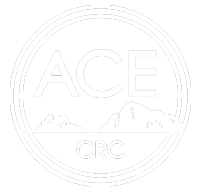ACE CRC launches Southern Ocean Acidification Report Card
There is increasing concern among scientists that ocean acidification, the so-called "evil twin" of climate change, could affect the functioning of whole marine ecosystems, and in particular, polar ecosystems.
This concern is underlined by the Antarctic Climate and Ecosystems Cooperative Research Centre’s (ACE CRC)launch today of Report Card: Southern Ocean Acidification. Ocean acidification is the name given to the decrease in the pH level of the ocean as it takes up more anthropogenic carbon from the atmosphere.
In recent years research has shown that this change in ocean chemistry decreases the availability of carbonate ions used by tiny organisms at the base of the marine food chain to build calcium carbonate shells or skeletons.
The Carbon Program leader at the ACE CRC, Professor Tom Trull, said it was now known that that the impacts of ocean acidification went beyond these organisms. "Recent work by the Australian Antarctic Division has shown that Antarctic krill show impaired embryonic development at high CO2 levels," Professor Trull said. Changing krill distribution could impact on predators such as whales, seals and penguins. "And we also know that the impacts are not negative for all organisms. Some may grow more rapidly in an elevated CO2 environment, but we don’t understand why because we don’t yet understand the mechanisms behind this change."
The leader of the ACE CRC Ocean Acidification project, Dr Donna Roberts, said the recent research on the impact of ocean acidification on non-calcifying organisms made its impacts on whole ecosystems hard to predict.
The chief executive officer of the ACE CRC, Dr Tony Press, said there was increasing global awareness of the dangers in ocean acidification. Research by scientists at the ACE CRC was making a significant contribution to understanding the potential impacts of ocean acidification, he said. The Southern Ocean Acidification Report Card clearly communicates recent developments in this field.
Download Report Card
Available for interview:
ACE CRC Ocean Acidification Project Leader Dr Donna Roberts: 03 6226-7543
ACE CRC Chief Executive Officer Dr Tony Press 0419 399 009
Dr Tony Press and Dr Donna Roberts will be part of an Australian Science Media Centre on-line media briefing on ocean acidification at 10.30am, Tuesday, April 5. For full details and link see
www.aussmc.org.
For more information:
Miranda Harman
Communications and Media Manager
Antarctic Climate and Ecosystems Cooperative Research Centre
03 6226-2265
0419 507 268
Media inquiries specifically on krill embryonic development:
Nisha Harris
Australian Antarctic Division
03 6232 3253
0419 005 482






















